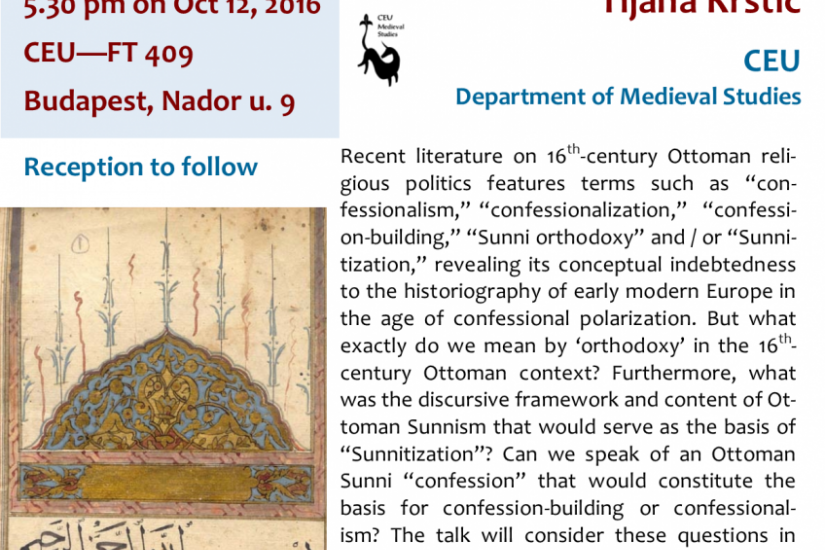
Recent literature on 16th-century Ottoman religious politics features terms such as “confessionalism,” “confessionalization,” “confession-building,” “Sunni orthodoxy” and / or “Sunnitization,” revealing its conceptual indebtedness to the historiography of early modern Europe in the age of confessional polarization. But what exactly do we mean by ‘orthodoxy’ in the 16th-century Ottoman context? Furthermore, what was the discursive framework and content of Ottoman Sunnism that would serve as the basis of “Sunnitization”? Can we speak of an Ottoman Sunni “confession” that would constitute the basis for confession-building or confessionalism? The talk will consider these questions in light of contemporary Ottoman “catechisms” (ilmihal).
Tijana Krstic is a historian of the early modern Ottoman Empire and its place in and connections with the wider early modern world. Her first project explored how various Ottoman Muslim and Christian authors narrated the phenomenon of conversion to Islam in the empire's formative period, between the fifteenth and seventeenth centuries. It resulted in the book Contested Conversions to Islam: Narratives of Religious Change and Communal Politics in the Early Modern Ottoman Empire (Stanford UP, 2011). Currently, she is the primary investigator of the OTTOCONFESSION project, which is funded by the European Research Council's Consolidator Grant, 2015-2020.